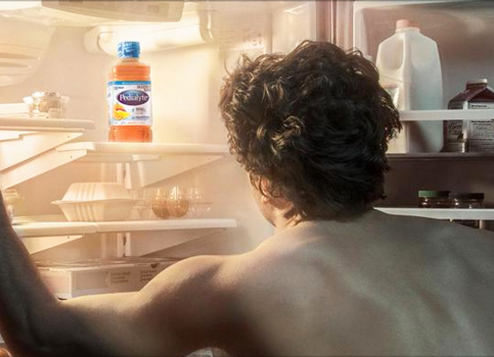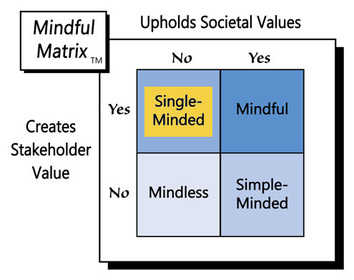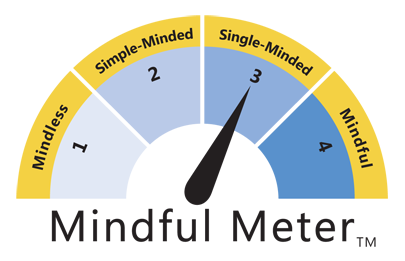That’s right, people who’ve gotten sloshed are picking up bottles of Pedialyte to help them pull through the day-after effects. How did someone discover that Pedialyte could serve this other purpose? It’s hard to know, but perhaps some inebriated parent still had the wherewithal to see the similarity: “Pedialyte makes my kid feel better when he throws-up from the flu, so it should help me feel better after vomiting because of my bender.”
It’s not uncommon for consumers to find alternative uses for products and for companies to capitalize on them. For instance, most of us wouldn’t have thought that soda used for baking could also deodorize refrigerators and keep swimming pools clear, but somebodies found these applications, and Arm & Hammer has marketed them, as well as a variety of other brand extensions.
However it was discovered, celebrities Pharrell Williams and Miley Cyrus can be credited for disseminating Pedialyte as a hangover cure to the masses, by highlighting their own use in social media. Williams says he drinks Pedialyte nearly every day, and Cyrus reportedly posed for a picture with a bottle of the remedy.
Thanks to social media and old school word-of-mouth, Pedialyte’s alternative use has ballooned, becoming big business for the medicine’s maker, Abbott Laboratories. Since 2012, adult usage of the elixir has increased by nearly 60%. While adult use historically had accounted for 10%-15% of Pedialyte sales, it now represents over 33% of total revenue, or upwards of $102 million.
Abbott Labs is also pleased with the new-found adult market because it breaks the bounds of seasonality. Normal Pedialyte sales peak during the cold and flu season and at other times remain stagnant. However, since people have hangovers all year-round, the adult market represents an even more reliable source of revenue, as well as one that promises double digit sales growth.
Given the momentum of Pedialyte sales to those who party hearty, one may wonder if Abbott Labs aims to put some perceptual distance between the two markets. For instance, it could rename and otherwise rebrand the liquid for the adult market in order to avoid the disconnect of giving the same Pedialyte to a baby fighting the flu and a dude trying to bounce back from a binge. Apparently Abbott Labs has no such plans.
Instead, the company will simply add “larger powered-stick packs for adults,” and it will offer “adult friendly-flavors” including strawberry lemonade and orange. Meanwhile, the Pedialyte name and most other branding will remain the same for both markets. To promote Pedialyte to adults, Abbott Labs has been using a campaign called “See the Lyte,” which suggests the drink as an antidote to too much alcohol, such as from a Cinco de Mayo celebration. The company also plans to promote to the adult market through social media and online advertising as well as by sampling the product at music festivals and sporting events.
So, whether you’re a kid fighting the flu or an adult battling a bender, there’s only one product you need to know—Pedialyte. Of course, Abbott Labs isn’t using the preceding as advertising copy, yet it’s essentially suggesting the same thing by not renaming and rebranding Pedialyte for the adult market. So far this lack of separation doesn’t seem to be hurting sales in either market, but eventually it may, particularly as Pedialyte-the-hangover-cure becomes better known. At that point parents may feel funny giving their sick toddler the same thing that recently intoxicated grown-ups take.
Potentially even more problematic, however, is the association that’s being built between Pedialyte and the overuse of alcohol. On one level, it’s dangerous to connect something meant for children with something else intended only for adults—remember cartoon character Joe Camel selling cigarettes? What makes things even worse, though, is that “adult” Pedialyte is not just associated with alcohol but with alcohol abuse.
It’s not people who drink a glass of wine with dinner or who have a couple of beers before bedtime who need Pedialyte. It’s those who exceed moderate alcohol intake and become wasted. Of course, drinking to the level of intoxication is potentially harmful physically, mentally, and socially to those doing the drinking. Furthermore, consequences like broken relationships and drunk-driving accidents suggest that alcohol abuse also is not good for society as a whole.
What makes the Pedialyte’s adult branding even more perplexing is the fact that the parent company, Abbott Laboratories, seeks to position itself as an organization that helps people “Live Healthy.” Abuse of alcohol certainly does not constitute healthy living. But, by promoting its product as a cure for the common hangover, Abbott Labs diminishes one of the main deterrents to drunkenness and suggests that it’s okay to get smashed.
Given the sales success that Abbott Labs has enjoyed in the adult Pedialyte market, it seems the product’s alternate use is creating stakeholder value, at least for now. Supporting alcohol abuse, however, compromises important societal values such as decency and respect: intoxicated individuals are prone to do things that are indecent and that place themselves and others at risk. Marketing Pedialyte to adults, therefore, represents “Single-Minded Marketing.”
Learn more about the Mindful Matrix and Mindful Meter.
Check out Mindful Marketing Ads and Vote your Mind!




 RSS Feed
RSS Feed